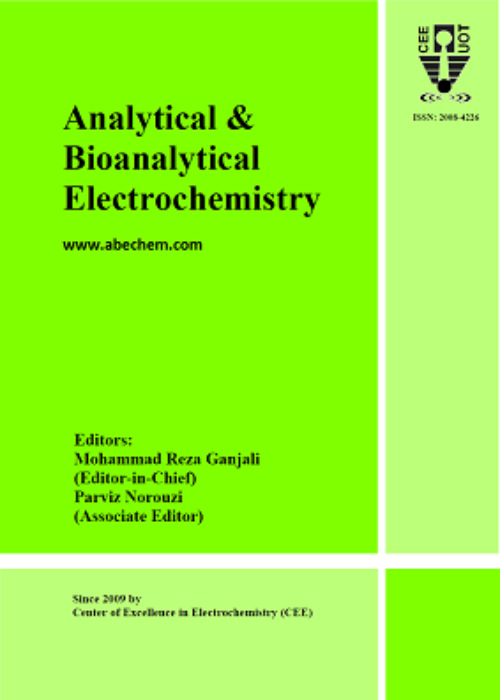Quantitative Structure-Electrochemistry Relationship (QSER) Study for Prediction of Half-Wave Reduction Potentials of Some Organic Compounds
Author(s):
Abstract:
Quantitative structure-electrochemistry relationship (QSER) model has been used to predict and explain half-wave reduction potentials (E1/2). This method allows for the prediction of E1/2s in a variety of organic compounds based on their structures alone. Stepwise multiple linear regression (MLR) was performed to build the model. The proposed methodology was validated using leave-one-out and leave-group-out cross validation using division of the available data set into training and test sets. The results illustrated that the linear techniques such as MLR combined with a successful variable selection procedure are capable to generate an efficient QSER model for predicting the E1/2s of different compounds. A model with low prediction error and good correlation coefficient was obtained (R2 calibration=0.883, R2 prediction=0.836, Q2 LOO=0.825,Q2 LGO=0.806, REP(%)=-12.98, RMSEP=0.203). This model was used for the prediction of the E1/2 values of some organic compounds which were not used in the modeling procedure.
Keywords:
QSER , Half , wave potentials (E1 , 2) , SW , MLR , Chemometrics , Cyclic voltammetry
Language:
English
Published:
Analytical & Bioanalytical Electrochemistry, Volume:1 Issue: 3, Sep 2009
Pages:
159 to 168
magiran.com/p1353906
دانلود و مطالعه متن این مقاله با یکی از روشهای زیر امکان پذیر است:
اشتراک شخصی
با عضویت و پرداخت آنلاین حق اشتراک یکساله به مبلغ 1,390,000ريال میتوانید 70 عنوان مطلب دانلود کنید!
اشتراک سازمانی
به کتابخانه دانشگاه یا محل کار خود پیشنهاد کنید تا اشتراک سازمانی این پایگاه را برای دسترسی نامحدود همه کاربران به متن مطالب تهیه نمایند!
توجه!
- حق عضویت دریافتی صرف حمایت از نشریات عضو و نگهداری، تکمیل و توسعه مگیران میشود.
- پرداخت حق اشتراک و دانلود مقالات اجازه بازنشر آن در سایر رسانههای چاپی و دیجیتال را به کاربر نمیدهد.
In order to view content subscription is required
Personal subscription
Subscribe magiran.com for 70 € euros via PayPal and download 70 articles during a year.
Organization subscription
Please contact us to subscribe your university or library for unlimited access!


